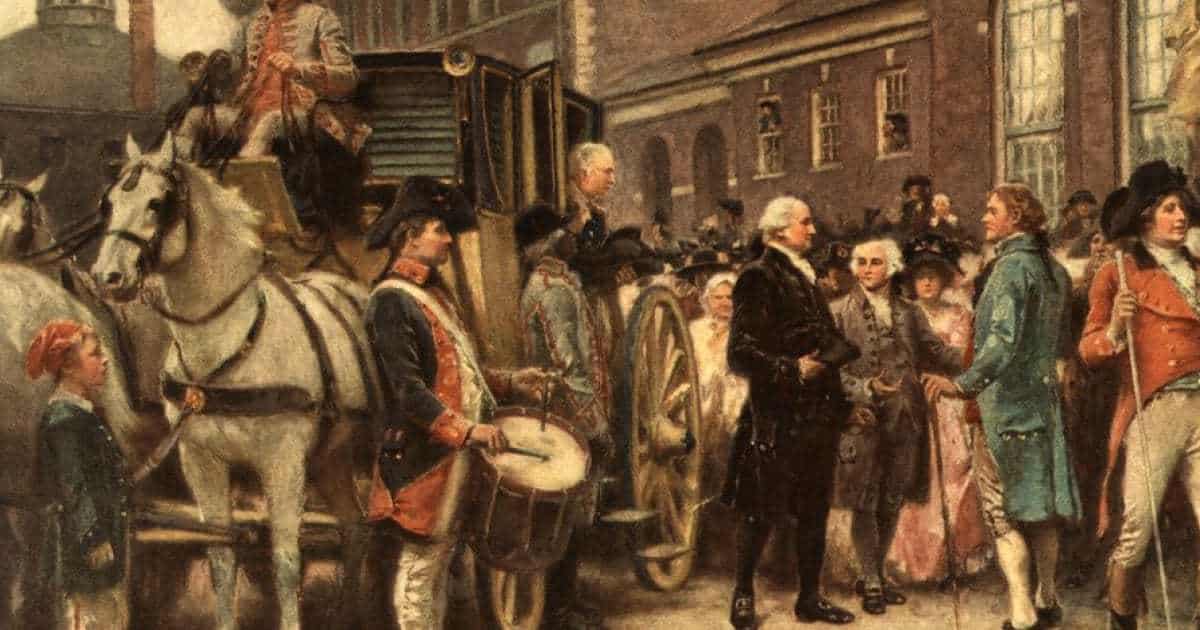America’s first presidential election was held when the Electoral College unanimously selected George Washington to become president in February of 1789. Washington again won in 1792. In those days, whomever had the second highest number of votes among the electors became Vice President, with John Adams receiving that honor, which he found dubious, on both occasions. Neither election was controversial, largely due to the overwhelming national popularity of George Washington. It seemed to all that the electoral process defined in the Constitution worked as its founders had intended.
That confidence did not last through the third presidential election, which was the first to truly be contended by opposing candidates. The emergence of political parties, shaped by regional factions and the debate over whether America should be an agrarian or industrial society, with a strong federal government or dominated by individual states, changed the nation and led to changes in the manner by which it elected its government. Since then many American elections, local, state, and national, have been controversial. There have been allegations of stolen elections, corrupt deals, stuffed ballot boxes, illegal votes being cast, bribery, and virtually every other sign of elections being “rigged” – to use a term in vogue – ever since.

The American people’s right to elect their leaders by casting votes is the cornerstone of their government. Here are ten instances when that right may have been less sacred than you would think.

The Presidential Election of 1800
Under the Constitution prior to the passage of the Twelfth Amendment, electors from several states were permitted to cast two votes for candidates eligible for the presidency. The prevailing theory behind the two votes was that one would be cast for President and one for Vice President. When the process was created during the Constitutional Convention established political parties did not exist. Nor were they anticipated by the Founders. By the end of George Washington’s terms of office party factions dominated American politics.
These parties were the Federalists, led by John Adams and Alexander Hamilton, who favored British policies and centralization of federal government. Adams and Hamilton, while of the same party, were bitterly divided on most issues. The opposing party was the Democratic-Republican party, who believed in a decentralized form of government, supported the French over the British, and were led by Thomas Jefferson and Aaron Burr.
Of the 16 states then extant, only six used popular vote to select its electors. The rest were elected by the state legislators. The two Democratic-Republican candidates – Burr and Jefferson – were from New York and Virginia respectively, relatively populous states. Although Burr was the party preference for the office of Vice President, the vagaries of the two electoral votes per elector system resulted in Burr and Jefferson being tied with 73 electoral votes each. John Adams, the leading Federalist, received 65.
Under the Constitution, the election was to be decided by the outgoing House of Representatives, which voted as states, with one vote for each of the 16 states. The House voted for a week, holding 35 different votes, without being able to select between Jefferson – who had dominated the popular vote where it had been cast – and Burr. Federalists in the House were opposed to Jefferson, many for personal reasons as well as political. Federalist Alexander Hamilton wrote dozens of letters persuading Federalists to vote for Jefferson, referring to Burr as a dangerous man – one of the sources of the animosity between Burr and Hamilton which would lead to their famous duel.
In the end, Jefferson won on the 36th ballot when several Federalists submitted blank ballots, rather than vote for either candidate. The incoming House of Representatives took action to correct the flaws which allowed for the tied election – and other inconsistencies in the electoral voting process – by passing the 12th Amendment to the Constitution, which was ratified in 1804. Among other changes, it specified that separate and distinct votes for President and Vice President were to be cast by electors.

